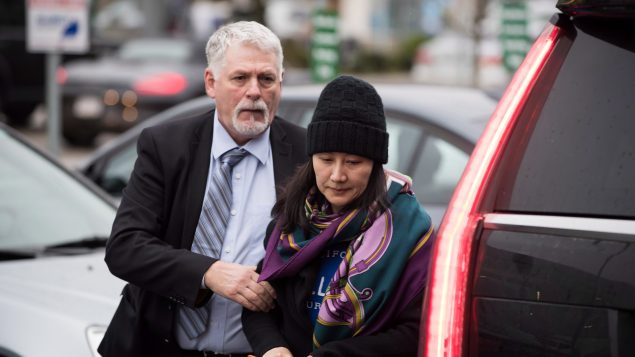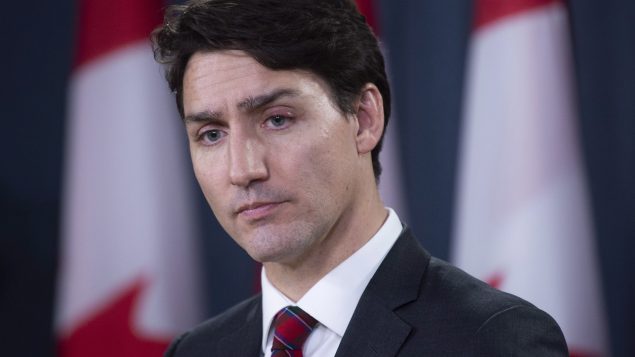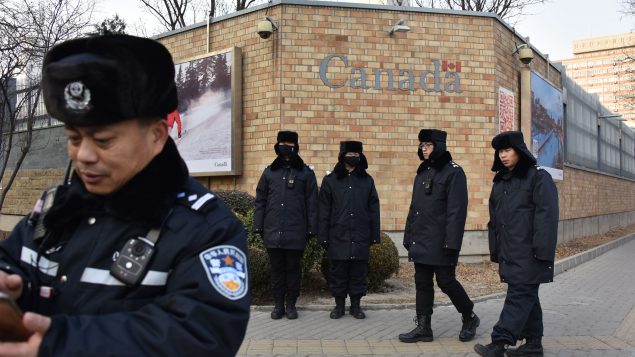Nearly 200 Canadians are currently detained in China for a variety of infractions and continue to face legal proceedings, Canadian officials confirmed to Radio Canada International.
Many of them are out on bail or serving probation.
However, despite increased media scrutiny of recent detentions of Canadians by Chinese authorities seen by many as retaliation by Beijing for the arrest of a top Chinese telecom executive in Canada, the number of detentions has remained stable throughout the last few years, officials said.
Speaking on background, officials said that given that tens of thousands of Canadians travel to China every year for tourism, work and study, there is nothing unusual in the number of detentions.
For comparison, there are almost 900 Canadians in a similar situation in the U.S., officials said.
Nevertheless, the sheer number of Canadians detained in China underlines a complex reality facing the Liberal government as it deals with Beijing’s fury following the arrest in Canada of Huawei executive Meng Wanzhou earlier this month.
Huawei arrest fallout

Huawei chief financial officer Meng Wanzhou, right, is escorted by a member of her private security detail while arriving at a parole office, in Vancouver, on Wednesday December 12, 2018. (Darryl Dyck/THE CANADIAN PRESS)
Meng, Huawei’s chief financial officer and daughter of the company’s founder Ren Zhengfei, was arrested in Vancouver on Dec. 1 on a U.S. arrest warrant. She was released on bail to await the results of extradition hearings to the U.S., where she’s facing charges of violating American sanctions on Iran.
Beijing is furious with Ottawa for acting on the U.S. warrant that many in China see as a part of a broader campaign against the titan of Chinese high-tech industry and an attempt to apply U.S. extraterritorial justice.
Days after Meng’s arrest, Beijing arrested two Canadians, former diplomat Michael Kovrig and China-based entrepreneur Michael Spavor, on suspicion of “endangering national security.”
A third Canadian, Sarah McIver, who taught English in China, was also detained for routine work visa violations.
Chinese Foreign Ministry spokesperson Hua Chunying told reporters Thursday that McIver was “imposed administrative penalty” for “illegal employment” but she did not provide further details on what that means.
Global Affairs Canada spokesperson Brendan Sutton told Radio Canada International late Thursday evening that Canadian diplomats were granted consular access to McIver.
“We have no reason to believe there is any connection between this case and other recent cases of Canadians detained in China for alleged reasons of national security,” Sutton said.
‘It’s always a lot more complicated’

Canadian Prime Minister Justin Trudeau listens to a question during an end of session news conference in Ottawa, Wednesday, Dec. 19, 2018. (Adrian Wyld/THE CANADIAN PRESS)
Speaking to reporters on Wednesday as news of McIver’s detention broke, Prime Minister Justin Trudeau said one of the lessons he has learned throughout his three years in office and having to deal with complex consular issues is that every case is different and one cannot use “one-size-fits-all cookie cutter approach” to all of them.
When he was in opposition, Trudeau said he remembers challenging his predecessor Conservative prime minister Stephen Harper in the House of Commons to get on the phone with his counterpart and “get this Canadian released.”
“I now understand that it’s always a lot more complicated than that,” Trudeau said. “Sometimes politicizing or amplifying the level of public discourse on this may be satisfying in the short term but would not contribute to the outcome we all want, which is for Canadians to be safe and secure.”







For reasons beyond our control, and for an undetermined period of time, our comment section is now closed. However, our social networks remain open to your contributions.